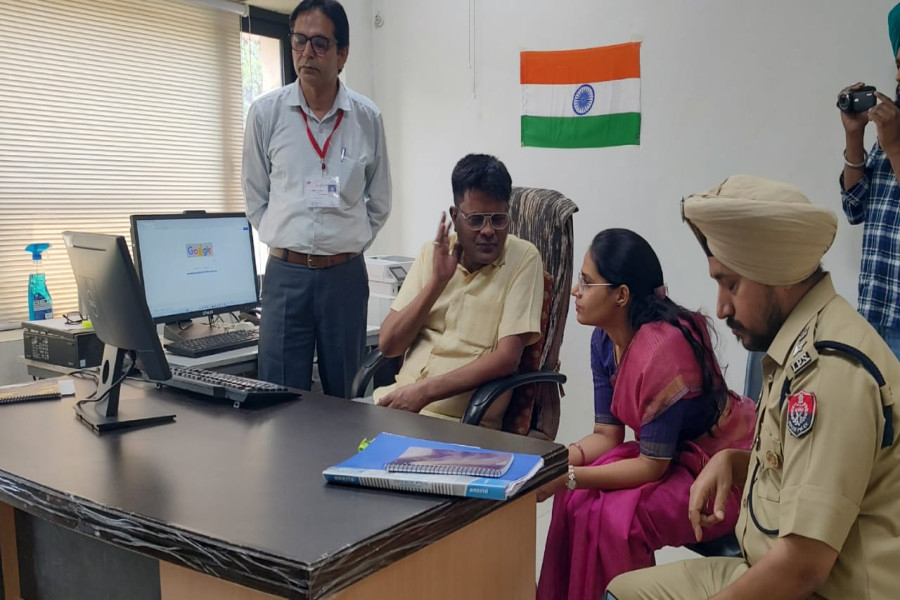The 28th Conference of Parties (COP28) to the United Nations Framework Convention on Climate Change (UNFCCC) is all set to feature a “global stocktake”, where participating countries will report on their progress in meeting their voluntary emissions reduction commitments and discuss strategies for closing the gaps. The summit also gives an opportunity to focus on corporate environmental responsibility (CER) to help protect our planet.
India’s stance at COP28 centres around the importance of adaptation and equity in addressing climate change. Along with other developing countries, it is pushing for a new global climate finance target, acknowledging the growing costs of addressing and adapting to climate change.
The Government of India has launched several domestic actions to improve understanding of climate change. It also put forward its long-term low-carbon development strategy to the UNFCCC in November 2022 after analysing the climate impact in India due to the global rise in temperature.
However, as most studies so far have relied on mathematical modelling of climate change impacts, these are not empirically verified. Hence, India needs more accuracy about the attribution of climate change directly causing untimely rains, severe droughts and flash floods.
As the central government complements the efforts of the state government through technical and financial aid, 34 states and Union territories have prepared State Action Plans on Climate Change (SAPCCs) consistent with the objectives of the National Action Plan on Climate Change (NAPCC).
However, this area is consistently developing and massive trends will continue to develop, but we as a nation need to keep up with the evolving innovations and put in continuous efforts.
While the national-level policy frameworks and ambitious targets look and sound phenomenal, what are we doing to achieve the set goals? There have been progressive initiatives by the Centre, but how has the implementation been going?
Companies try to portray themselves as persuasive towards sustainability practices, but we need to look at the actual impact of their initiatives. The social sector is intellectually aloud about all sorts of jargon related to the environment and climate change; however, what is really happening at the grassroot level?
We must question how public, private and social sectors can collaborate to foster a conducive environment for sustainability-led solutions and innovative environmental, social and governance practices.
Among a broad range of potential solutions to curb the emerging challenges, CER needs to take root in the country because businesses often desist from giving back to the environment after sourcing natural resources.
CER suggests that it is the responsibility of the companies operating within society to contribute towards economic, social and environmental development that creates a positive impact on society at large. It is an important concept and businesses must take into consideration to ensure the sustainability of our planet.
Companies have a responsibility to reduce their environmental impact and promote sustainable practices. This includes reducing emissions, conserving resources and minimising waste.
It also involves educating employees about the importance of environmental responsibility and encouraging them to adopt eco-friendly habits.
They can help protect our planet for future generations if they start implementing a company-wide recycling programme to reduce waste and promote sustainable practices. The companies should invest in renewable energy sources such as solar or wind power to reduce their reliance on fossil fuels.
They need to be innovative and develop a carbon offset programme to balance out their carbon emissions and shouldn’t be reluctant to use environmentally friendly materials and products in manufacturing and packaging.
Furthermore, companies should encourage their employees to use public transportation, carpool, or bike to work. Companies can also partner with local environmental organisations to support conservation efforts and volunteer opportunities.
There is a need to conduct regular environmental audits to assess a company's impact on the environment. If companies start offering incentives for customers to recycle or return products for reuse, it might lead to positive outcomes in the long run.
While companies are incorporating eco-friendly practices into their supply chain management, they should not be reluctant to support the research and development of new environmentally sustainable technologies.
Humans are the most selfish of the species and the last two centuries since the onset of the Industrial Revolution in the 19th century have taken a massive toll on the environment. We need societies that are liveable, workable and sustainable and we need to find an equilibrium between ecological concerns and developmental needs.
The public, private and social sectors need to come together to adopt sustainability initiatives, strengthen ecological communication and build a multi-stakeholder roadmap to address existing gaps, barriers and challenges on our sustainability journey.
social responsibility (CSR) funds for environmental causes.
A slight amendment to the Companies Act, 2013 to ensure that a set percentage of CSR funds get reserved for CER will be a massive move. Ideally, it is also recommended to define frameworks for capturing several indicators and make this reporting mandatory.
This way, it will also be one of the substantial instruments to achieve the UN-mandated ustainable Development Goals by 2030.
Heera Lal is an Indian Administrative Service officer and Sumit Kaushik is a PhD candidate at OP Jindal Global University and a Social Impact Consultant
Reference Link : https://www.downtoearth.org.in/blog/climate-change/cop28-should-shine-a-spotlight-on-corporate-environmental-responsibility-91696






























.jpg)